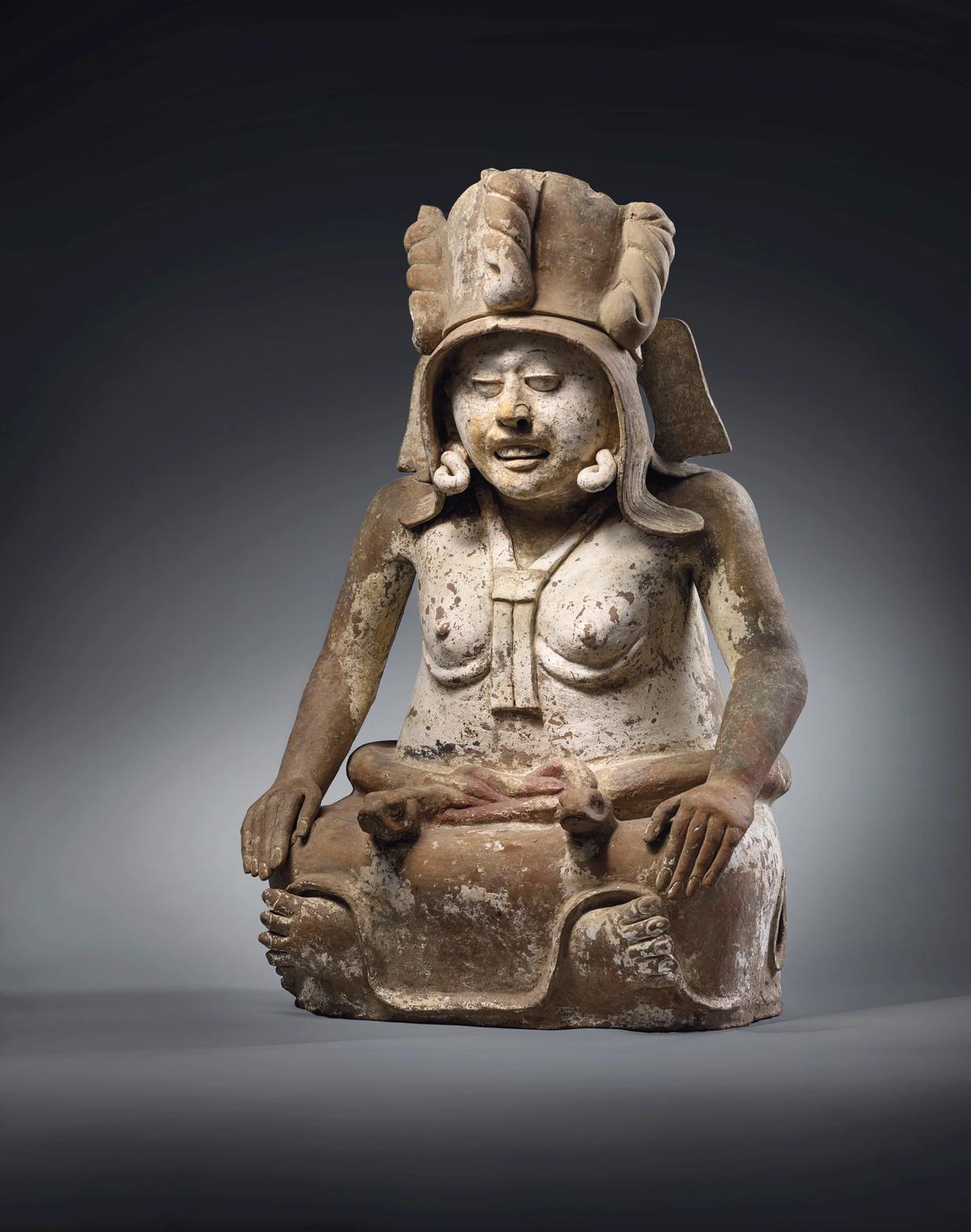Mexico’s National Institute of Anthropology and History (INAH) has requested the suspension of a sale of Pre-Columbian art, Quetzalcoatl: Serpent à plumes, tomorrow at Christie's Paris, and has claimed some of the works to be inauthentic. Christie's has rebuffed the claim and is proceeding with the auction.
“The archaeological goods of our country are the property of the nation, inalienable, imprescriptible and inaccessible, and therefore, they are outside of any act of commerce,” Diego Prieto, the INAH’s director, told AFP. Prieto has reportedly referred the claim to Mexico’s prosecutor’s office.
A Christie's representative tells The Art Newspaper: “As this is an ongoing matter, we will not disclose any details in regards to the correspondence between Christie’s and Mexican authorities. But we can confirm that to date Christie’s has not been provided with any evidence that would challenge the lawfulness of this sale. Should Christie’s be provided with such evidence, we would of course consider it seriously, carry out further investigation and take any necessary measures including withdrawing any lot from the sale if we had any doubt about its provenance or its authenticity.”
Quetzalcoatl: Serpent à plumes comprises 39 lots from a private European collection, ranging from Valdivia steles—engraved stones, the most historic of which date to 2300-2000 B.C.—to objects from the Aztec, Maya and Teotihuacan civilisations.
One of the disputed objects is lot 23 (estimate €350,000-550,000), a Teotihuacan Serpentine Mask, dating from 450-650 that formerly belonged to the gallery of Pierre Matisse, son of Henri Matisse. Prieto is quoted in Spanish daily El Pais as saying that the mask is “contemporary, possibly from a few decades ago”. Referring to pieces in the sale, Prieto says: “It is obvious that it is Mexican heritage. The crime is when they [Christie’s] pass off those works as antique pieces.”
Prieta argues that “permissive legislation” in France, where UNESCO is headquartered, enables such auctions to take place and is delaying the “long but not sterile struggle” for restitution.
French auction houses have long been embroiled in controversial issues against Mexico. In 2015, an Olmec bas-relief petroglyph from 900 B. C. was restituted to Mexican authorities after being offered in a sale at Binoche et Giquello auction house. The piece was withdrawn from the sale and restituted once it had been restored and authenticated.
Also in the Christie’s sale is a Veracruz figure of Cihuateotl, a fertility goddess sitting with her legs crossed under her skirt, estimate €600,000-900,000, who according to Aztec mythology died in childbirth.


